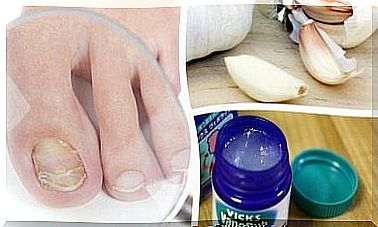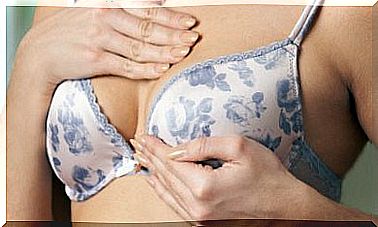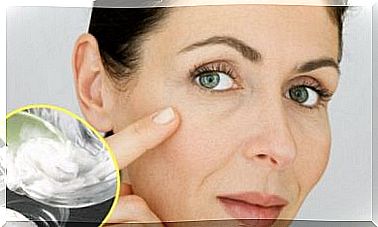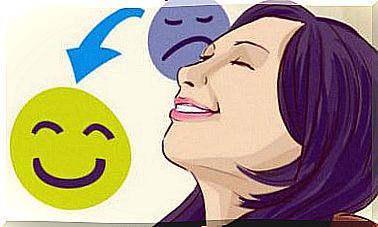The 5 Most Common Causes Of Night Sweats
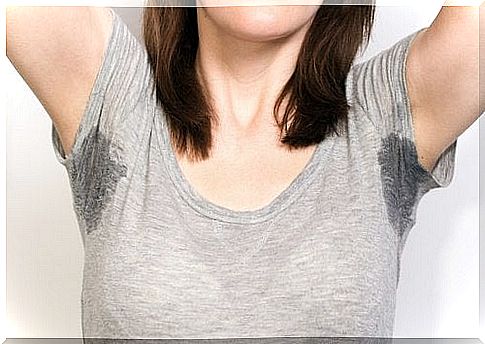
If you often wake up in the bath in sweat, then you know how uncomfortable it is. But did you know that sweating can be a sign of a health problem?
Often, the presence of nocturnal sweating is a secondary effect from one’s surroundings. You may have turned up the radiator too much, slept with thick nightwear on or used a duvet that is too hot.
Other times , it may be a sign of a deeper problem. If you have this problem often, then it may be caused by one of the following medical conditions:
1. Obstructive sleep apnea syndrome
People who suffer from this disease do not sleep well at night. This is because their airways are blocked. It limits their breathing. A secondary effect of this, however, is excessive sweating.
But this is not all. Other symptoms you may experience are:
- To snore
- Fatigue during the day
- Headache
- Bad mood
If you notice one or more of these symptoms along with night sweats, then it is best to talk to your doctor.
If you are diagnosed with obstructive sleep apnea, then you should treat it before it causes major problems. This can cause heart problems or diabetes.
The solution for most people is to use a machine that helps one to breathe at night. It lets one sleep better so that one gets rid of the related symptoms.
2. Menopause can be the cause of many sweats

Menopause and one’s age cause ups and downs for one’s hormones. This causes one to lose control of his body. These constant changes also destroy one’s body temperature.
Menopausal women often wake up and feel stuffy and very uncomfortable because of these night sweats. Some wake up several times during the night. These symptoms also include:
- Irregular menstruation
- Dry skin
- Bad mood
The average age to reach menopause is about 51 years old. However, one can start having night sweats for several years before reaching menopause.
Some women start to suffer from night sweats in their 30s.
Menopause is a common part of a woman’s life and does not need to be “treated”.
However, if the symptoms are too bothersome, your doctor may recommend some treatments. These may make you more comfortable as you go through this phase of life.
3. Anxiety

When one suffers from anxiety or chronic stress during the day, then it can lead to night sweats.
It is a good thing to talk to a counselor who can help relieve the symptoms of anxiety. This is especially true if you do not really know what is causing it.
Many therapists perform therapy for cognitive behavior. These teach one to change one’s way of thinking. That way, you can identify and redirect your thoughts that are causing your anxiety or stress.
However, the therapy is not always enough in itself. If so, you can go to other mental health experts. They can evaluate one and recommend a better treatment to combat the problem.
If you do not want to start on antidepressant or other forms of medication, then you can start with the following:
- To exercise more
- Live a calmer life
- Follow a balanced diet
4. Some diseases
You should not automatically assume the worst if you often have night sweats. However, it is important to go to a doctor.
Sweating at night is a secondary effect from many diseases. Some can be very serious, such as bacterial and viral infections. It can even be caused by some form of cancer.
When it is a more serious problem, nocturnal sweating usually comes along with other symptoms. Only one’s doctor can find out what is happening, through some examinations.
The treatment varies depending on the disease you have. Typically, it can be treated with antibiotics or other forms of therapy.
5. Low blood sugar

Hypoglycemia is also known as low blood sugar. It can be the cause of night sweats associated with diabetes.
But this is not the only symptom. The problem can also make diabetics sweat more during the day.
Low blood sugar is usually a secondary effect. This can be caused by problems with insulin or other medications that are being used to treat diabetes.
If you have these problems regularly, your doctor may recommend some changes to your lifestyle. These changes can reduce the likelihood of suffering from low blood sugar.
This may involve eating certain foods regularly. It can also mean keeping a closer eye on your blood sugar level.
Night sweats can be uncomfortable. However, one should remember that it is a sign that one’s body gives one to tell that something is not right.
Pay special attention if you often have night sweats. And keep an eye out for if they occur along with other symptoms.
It can help to find out what the main cause is if you talk to your doctor. This will quickly get one on the right track to finding a solution.
